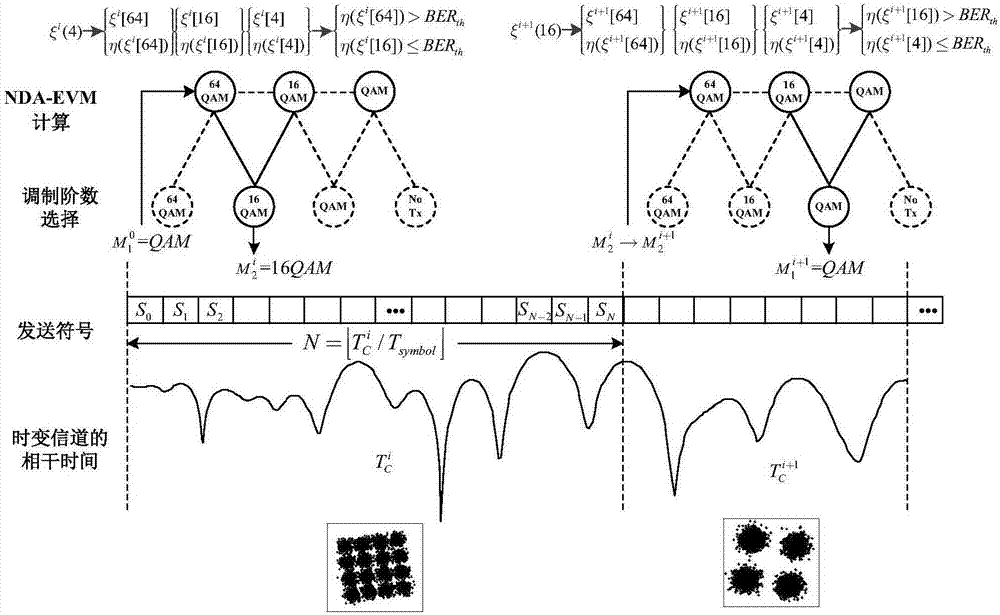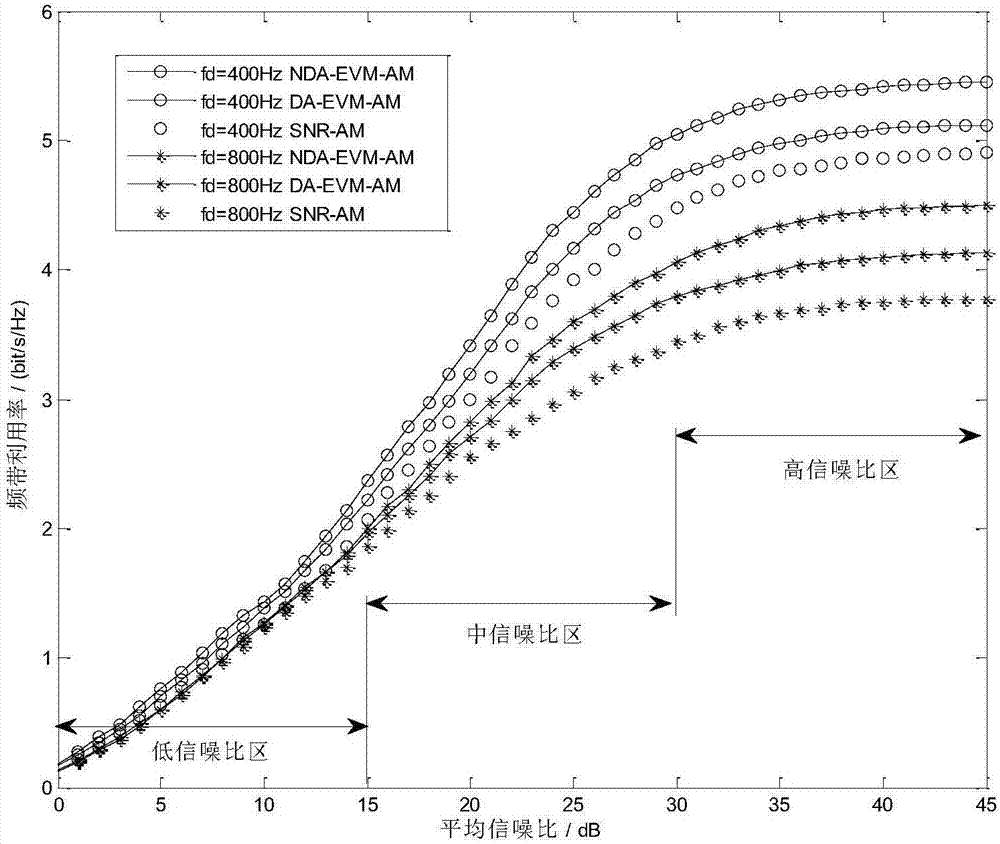Non data aided-error vector magnitude adaptive modulation method under fast time-varying channel
An error vector magnitude, non-data-assisted technology, applied in error prevention, digital transmission system, adjustment of transmission rate, etc., can solve the problems of reducing spectrum utilization, reducing spectrum utilization, co-channel interference, etc. Accuracy and the effect of improving spectrum utilization
- Summary
- Abstract
- Description
- Claims
- Application Information
AI Technical Summary
Problems solved by technology
Method used
Image
Examples
Embodiment Construction
[0029] Embodiments of the technical solutions of the present invention will be described in detail below in conjunction with the accompanying drawings. The following examples are only used to illustrate the technical solutions of the present invention more clearly, and therefore are only examples, rather than limiting the protection scope of the present invention. It should be noted that, unless otherwise specified, the technical terms or scientific terms used in this application shall have the usual meanings understood by those skilled in the art to which the present invention belongs.
[0030] EVM can be calculated using auxiliary data (DA-EVM, Data Aided-Error Vector Magnitude), or can be directly calculated using data symbols without using auxiliary data (NDA-EVM, Non Data Aided-Error Vector Magnitude). In actual communication, non-data-assisted reception is mostly used. NDA-EVM is not affected by the auxiliary data interval, which is conducive to the improvement of spectr...
PUM
 Login to View More
Login to View More Abstract
Description
Claims
Application Information
 Login to View More
Login to View More - R&D
- Intellectual Property
- Life Sciences
- Materials
- Tech Scout
- Unparalleled Data Quality
- Higher Quality Content
- 60% Fewer Hallucinations
Browse by: Latest US Patents, China's latest patents, Technical Efficacy Thesaurus, Application Domain, Technology Topic, Popular Technical Reports.
© 2025 PatSnap. All rights reserved.Legal|Privacy policy|Modern Slavery Act Transparency Statement|Sitemap|About US| Contact US: help@patsnap.com



